
Kód: 04032035
Composer as Intellectual
Autor Jane F. Fulcher
In The Composer as Intellectual, musicologist Jane Fulcher reveals the extent to which leading French composers between the world wars were not only aware of, but engaged intellectually and creatively with the central political an ... celý popis
- Jazyk:
 Angličtina
Angličtina - Väzba: Brožovaná
- Počet strán: 488
Nakladateľ: Oxford University Press Inc, 2008
- Viac informácií o knihe

Mohlo by sa vám tiež páčiť
-

Essential Tarot
20.73 € -20 % -

Rosicrucian Magic
55.21 € -

Fundamentals of Microelectronics With Robotics and Bioengineering Applications, 3rd Edition
171.84 € -

Where Hope Comes From
14.73 € -25 % -
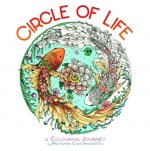
Circle of Life
11.99 € -19 % -

Colour And Create alphabet: A Fun Coloring Activity Book For 2-5 Year, words From A-Z, Alphabet Coloring 8.5 x 11 Pad, Activity Book for Toddlers
8.23 € -1 % -

Tajikistan
16.97 € -23 % -

Love and Other Words
10.16 € -24 % -

Atomic Habits
16.36 € -29 % -

Dog Man
11.07 € -17 % -

Mayor of Casterbridge
9.34 € -18 % -

All the Multivese! II Between Multiverse Universes; Quantum Entanglement Explained by the Multiverse; Coherent Baryonic Radiation Devices - Phasers; N
31.92 € -

Syria
31.72 € -9 % -

English Nonconformist Poetry, 1660-1700, vol 2
185.47 € -

Political Ideology in the Arab World
28.26 € -15 % -

Vegan
38.94 € -

Joe Biden
16.46 € -14 % -

Integr T M Rketinga Komunik Cija Viesn C
56.22 € -

Krieg in China 1900 - 1901 nebst einer Beschreibung der Sitten, Gebrauche und Geschichte des Landes
51.14 € -2 % -

Was ist Soziologie?
16.46 € -4 % -

Passe un ange noir
9.85 €
Darčekový poukaz: Radosť zaručená
- Darujte poukaz v ľubovoľnej hodnote, a my sa postaráme o zvyšok.
- Poukaz sa vzťahuje na všetky produkty v našej ponuke.
- Elektronický poukaz si vytlačíte z e-mailu a môžete ho ihneď darovať.
- Platnosť poukazu je 12 mesiacov od dátumu vystavenia.
Viac informácií o knihe Composer as Intellectual
Nákupom získate 143 bodov
 Anotácia knihy
Anotácia knihy
In The Composer as Intellectual, musicologist Jane Fulcher reveals the extent to which leading French composers between the world wars were not only aware of, but engaged intellectually and creatively with the central political and ideological issues of the period. Employing recent sociological and historical insights, she demonstrates the extent to which composers, particularly those in Paris since the Dreyfus Affair, considered themselves and were considered to be intellectuals, and interacted closely with intellectuals in other fields. Their consciousness raised by the First World War and the xenophobic nationalism of official culture, some joined parties or movements, allying themselves with and propagating different sets of cultural and political-social goals. Fulcher shows how these composers furthered their ideals through the specific language and means of their art, rejecting the dominant cultural exclusions or constraints of conservative postwar institutions and creatively translating their cultural values into terms of form and style. This was not only the case with Debussy in wartime, but with Ravel in the twenties, when he became a socialist and unequivocally rejected a narrow, exclusionary nationalism. It was also the case with the group called "Les Six," who responded culturally in the twenties and then politically in the thirties, when most of them supported the programs of the Popular Front. Others could not be enthusiastic about the latter and, largely excluded from official culture, sought out other more compatible movements or returned to the Catholic Church. Like other French Catholics, they faced the crisis of Catholicism in the thirties when the church not only supported Franco, but Mussolini's imperialistic aggression in Ethiopia. While Poulenc embraced traditional Catholicism, Messiaen turned to more progressive Catholic movements that embraced modern art and insisted that religion must cross national and racial boundaries. Fulcher demonstrates how closely music had become a field of clashing ideologies in this period. She shows also how certain French composers responded, and how their responses influenced specific aspects of their professional and stylistic development. She thus argues that, from this perspective, we can not only better understand specific aspects of the stylistic evolution of these composers, but also perceive the role that their art played in the ideological battles and in heightening cultural-political awareness of their time.
 Parametre knihy
Parametre knihy
Zaradenie knihy Knihy po anglicky The arts Music Music: styles & genres
57.55 €
- Celý názov: Composer as Intellectual
- Autor: Jane F. Fulcher
- Jazyk:
 Angličtina
Angličtina - Väzba: Brožovaná
- Počet strán: 488
- EAN: 9780195342963
- ISBN: 0195342968
- ID: 04032035
- Nakladateľ: Oxford University Press Inc
- Hmotnosť: 691 g
- Rozmery: 234 × 156 × 25 mm
- Dátum vydania: 20. March 2008
Obľúbené z iného súdka
-
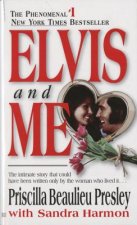
Elvis and Me
8.53 € -24 % -

Slash: The Autobiography
11.38 € -23 % -
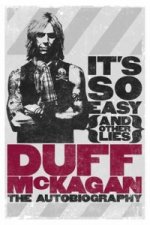
It's So Easy (and other lies)
11.28 € -24 % -

I'm with the Band
13.72 € -24 % -

A Perfect Union of Contrary Things
16.36 € -22 % -

David Bowie
11.38 € -28 % -

Sweet Child of Mine
16.77 € -

Standing in the Shadows of Motown
34.46 € -15 % -

How to Rap 2
10.97 € -23 % -

How to Rap
15.75 € -13 % -

American Hardcore
21.55 € -10 % -

Harmony, Counterpoint, Partimento
67.61 € -

Our Band Could Be Your Life
17.28 € -28 % -
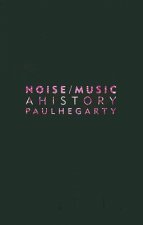
Noise Music
47.88 € -

Abba On The Record Uncensored
19.11 € -

New Kids on the Block's Hangin' Tough
12.60 € -22 % -

Inner Voice
19.31 € -23 % -

Prince and the Purple Rain Era Studio Sessions
26.94 € -7 % -

Lennon
22.06 € -18 % -
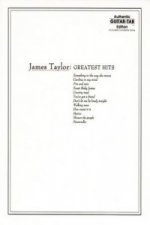
James Taylor
21.75 € -17 % -

The Ring of Truth
10.97 € -23 % -

HIP-HOP History (Book 1 of 3)
35.99 € -19 % -

Jazz Ballads
21.04 € -14 % -

Wagner Operas
43.82 € -

Murder In The Front Row
46.05 € -18 % -

Amy Winehouse
25.01 € -17 % -

Misery Obscura
31.11 € -4 % -

Just Kids
12.90 € -23 % -

The Long Hard Road Out Of Hell
15.24 € -23 % -

Moonwalk
12.80 € -11 % -

Lords Of Chaos - 2nd Edition
19.41 € -16 % -

Scar Tissue
11.38 € -28 % -

Real Book
47.38 € -6 % -

Angry Blonde
11.38 € -28 % -

The Dirt - Mötley Crüe
17.68 € -5 % -

Complete Preludes, Nocturnes & Waltzes
20.33 € -15 % -

I Am Ozzy
12.19 € -29 % -

True Norwegian Black Metal: We Turn in the Night Consumed by Fire
51.04 € -15 % -

Shut Up and Give Me the Mic
16.67 € -17 % -

Official Truth, 101 Proof
14.94 € -29 % -

Real Rock Book - Volume II
38.12 € -17 % -
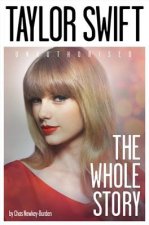
Taylor Swift
13.11 € -14 % -

No One Here Gets Out Alive
9.75 € -7 % -
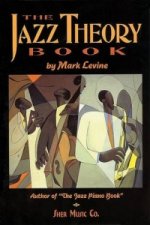
Jazz Theory Book
53.88 € -15 % -

Pink Floyd All The Songs
45.14 € -18 % -

Jazz Piano Book
47.27 € -

Jimmy Page by Jimmy Page
52.66 € -13 % -
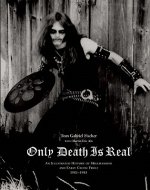
Only Death Is Real
32.33 € -20 % -
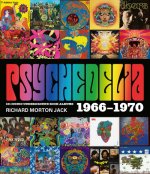
Psychedelia
30.29 € -25 %
Osobný odber Bratislava a 2642 dalších
Copyright ©2008-24 najlacnejsie-knihy.sk Všetky práva vyhradenéSúkromieCookies



 21 miliónov titulov
21 miliónov titulov Vrátenie do mesiaca
Vrátenie do mesiaca 02/210 210 99 (8-15.30h)
02/210 210 99 (8-15.30h)